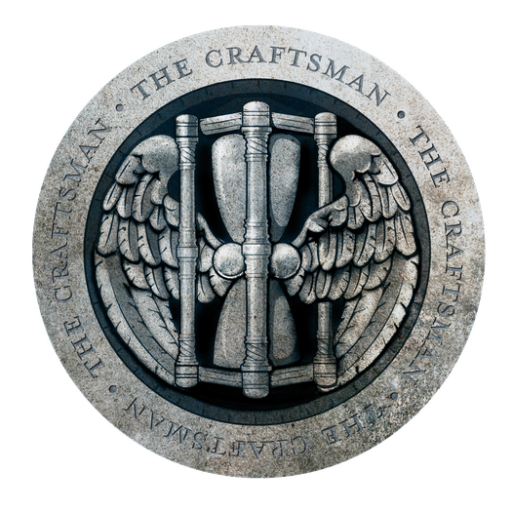In 1820, Lexington, Kentucky was one of the largest and wealthiest towns west of the Allegheny Mountains. So cultured was its lifestyle that the city gained the nickname, “the Athens of the West.” The exceptionally warm temperatures and rainfall in the spring of 1833 left large pools of standing water in the downtown area of the community that did not yet have a sufficient sanitary water supply or run off disposal system. The town’s drinking water was soon contaminated. A brief but devastating cholera epidemic ensued.
Read MoreMASONIC VIDEOS Learn more about this documentary
Read MoreThis is the Entered Apprentice Tracing Board on display at Lexington Lodge No. 1.
Read MoreMasonic Perspectives is a project created by Past Masters John W. Bizzack, Ph.D. and Dan M. Kemble intended to bring the writings about controversial topics of the past in American Freemasonry and provide readers a second look and contemporary perspective on the topics to serve as a catalyst for further discussion. This project is a joint venture of Lexington Lodge No. 1, The Rubicon Masonic Society, and William O. Ware Lodge of Research, Covington, Kentucky.
Read MoreIn December 1943 the last major offensive of World War II by the German Army took place in southern Belgium near the town of Bastogne. Twenty-five German Divisions made up of 200,000 soldiers and supported by nearly 1,000 heavy tanks, executed a surprise attack on Allied Forces. The battlefield became a seventy-five-mile stretch thick forest held by four inexperienced and battle-worn American divisions stationed there for rest and seasoning. The Germans broke through the American frontlines surrounding most of an infantry division, seizing key crossroads, and advancing their spearheads toward the Meuse River. This created a bulge in the line established by the Allies, thus giving history the name of what was to follow the Battle of the Bulge.
Read MoreThe word “fib” extends back to the 1400s or so. At that time, the word fable had its first appearance in the English language and had two meanings: a pleasant narrative or a downright lie. We still use that word in either sense. About 300 or 400 years ago, some unknown parent decided to soften the blow of the word by accusing their child of telling a “fibble-fable” when the child was caught telling a story the parent knew to be utter nonsense. This term caught on as an expression for a slight falsehood. Wordsmiths surmise that the term was too long to use as a name for a “slight sin,” so it soon shortened to “fib.”
Read MoreBy the time the first lodges in America had been warranted and formed, organized British Freemasonry had been in existence for no more than fifteen years. American Freemasonry did not merely take over from where the grand lodges of England, and later the grand lodges of Scotland, and Ireland left off. Freemasonry in the United States is a child of the Revolution—several generations removed from a more mature British society of the time that influenced the shape of and initial organization of Freemasonry in England. In the 1730s when Freemasonry began to appear in the colonies, it collided with local cultures and began transforming what was created in Britain into a different kind of system influenced by yet another set of cultural stimuli.
Read MoreThe first time American Freemasonry shot itself in the foot was in the final decades of the 18th century. A December 1779 document tells us the state and condition of the Fraternity and offered a bold recommendation to address the condition. The failure of existing Grand Lodges to act on the recommendation cocked the pistol. The failure to do anything about the condition of the Fraternity that led to the recommendation pulled the trigger that led to the limp. The call for Grand Lodges to examine the 1779 recommendation would be made thirteen more times before the end of 1860. Each call was rejected. The indifference and failure to recognize and acknowledge the serious underlying issues that caused the recommendations to resurface for decades led to an aggravating, lasting limp.
Read MoreIf you sense there is much less rigorous analysis about so many things today, trust your senses. We skim a lot. And details surrounding complicated problems get in the way of skimmers. We do not seem to have a society-wide interest in engaging in historical thinking these days, even though such thinking offers the opportunity to think and reason in more sophisticated ways. Few seem to devote much time or demonstrate personal inspiration to mine truth from the quicksand of inference and innuendo in which our technology engulfs us. Notwithstanding the positives from the fact that we have a repository of the world’s information at our fingertips more than at any time in history, the Internet gives millions of people the opportunity to pioneer, hone, and to largely advance their skimming skills.
Read MoreWhen we hear someone referred to as a “maverick” we might first think of the American Western dramatic television series with comedic overtones that aired from 1957-1962, or the 1996 American Western comedy film based on the same story line. Some may know the word because it is the name of a professional basketball team based in Dallas, a hockey team in New York, the call sign of a fighter pilot in a popular 1986 film, or the name of the model of a 1970 Ford automobile. The meaning of many words in our language may change over time with popular usage and slang. The evolution of the meaning for words and even phrases is known as semantic change or drift. That semantic drift gives us several meanings for maverick.
Read More




